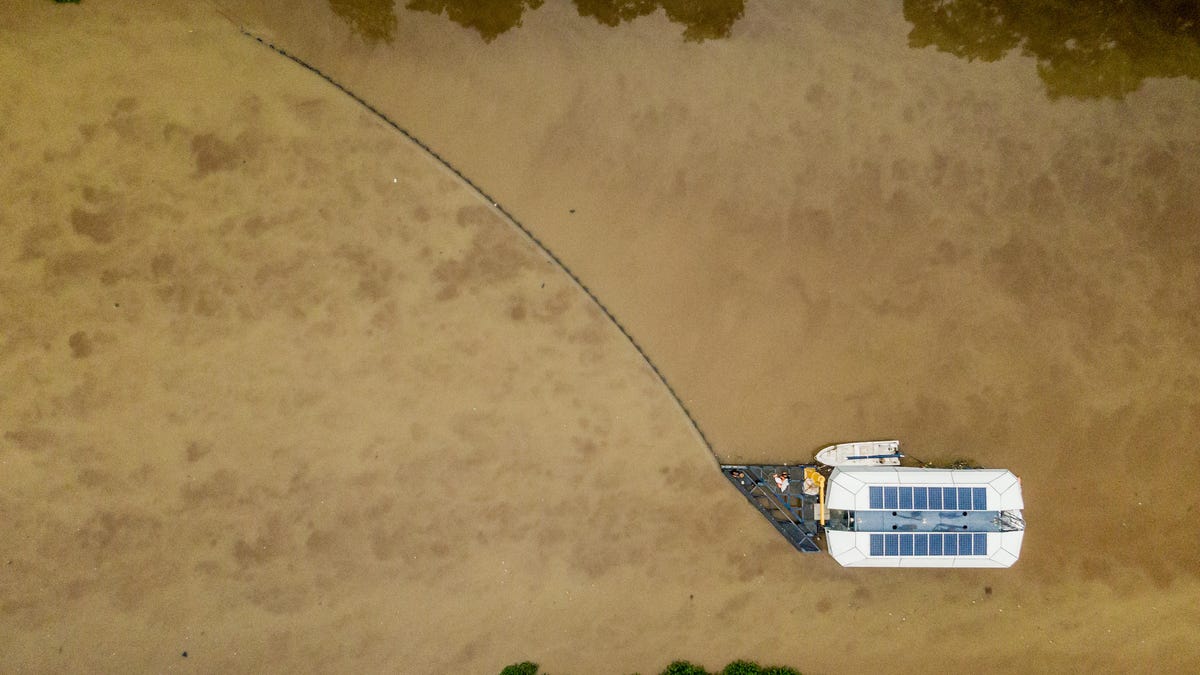The Ocean Cleanup expands to polluted rivers
Watch The Ocean Cleanup unveil its new automated system The Interceptor, which will be deployed to catch plastic debris in rivers before it reaches our oceans.

The Ocean Cleanup, which launched a system last year to clear away the Great Pacific Garbage Patch off California (The Ocean Cleanup launches to the Pacific Garbage Patch), just announced a new device to catch plastic before if flows into the ocean. During an Oct. 26 press conference (The Ocean Cleanup unveils The Interceptor; a river-based plastic catcher) in the Netherlands, Ocean Cleanup CEO Boyan Slat unveiled the Interceptor, which'll be used to clean up 1,000 of the most plastic polluting rivers in the world. The rivers being targeted are "responsible for about 80% of ocean plastic pollution," according to a press release, and the goal is to finish the cleanup before the year 2025 is out.
The Interceptor is a large, scalable device that'll be anchored to riverbeds to autonomously catch plastic as it flows along. The group says the Interceptor can extract 50,000 kilograms (about 110,000 pounds) of trash per day and could potentially collect up to "100,000 kg per day under optimized conditions." The device is designed to be environmentally friendly. It's solar powered, and lithium-ion batteries let it work day and night without producing noise or exhaust fumes, the group says.
Ocean Cleanup's Interceptor has already been installed and is operational in two locations: Jakarta, Indonesia, and Klang, Malaysia. A third system is headed to Can Tho in the Mekong Delta in Vietnam, the group says, and a fourth is destined for the Dominican Republic.
CNET spoke with Slat via Skype about the Interceptor.
Watch highlights from The Ocean Cleanup's Interceptor news event here:

